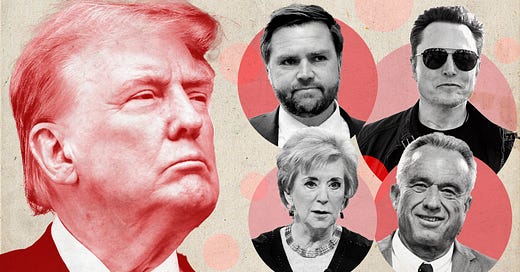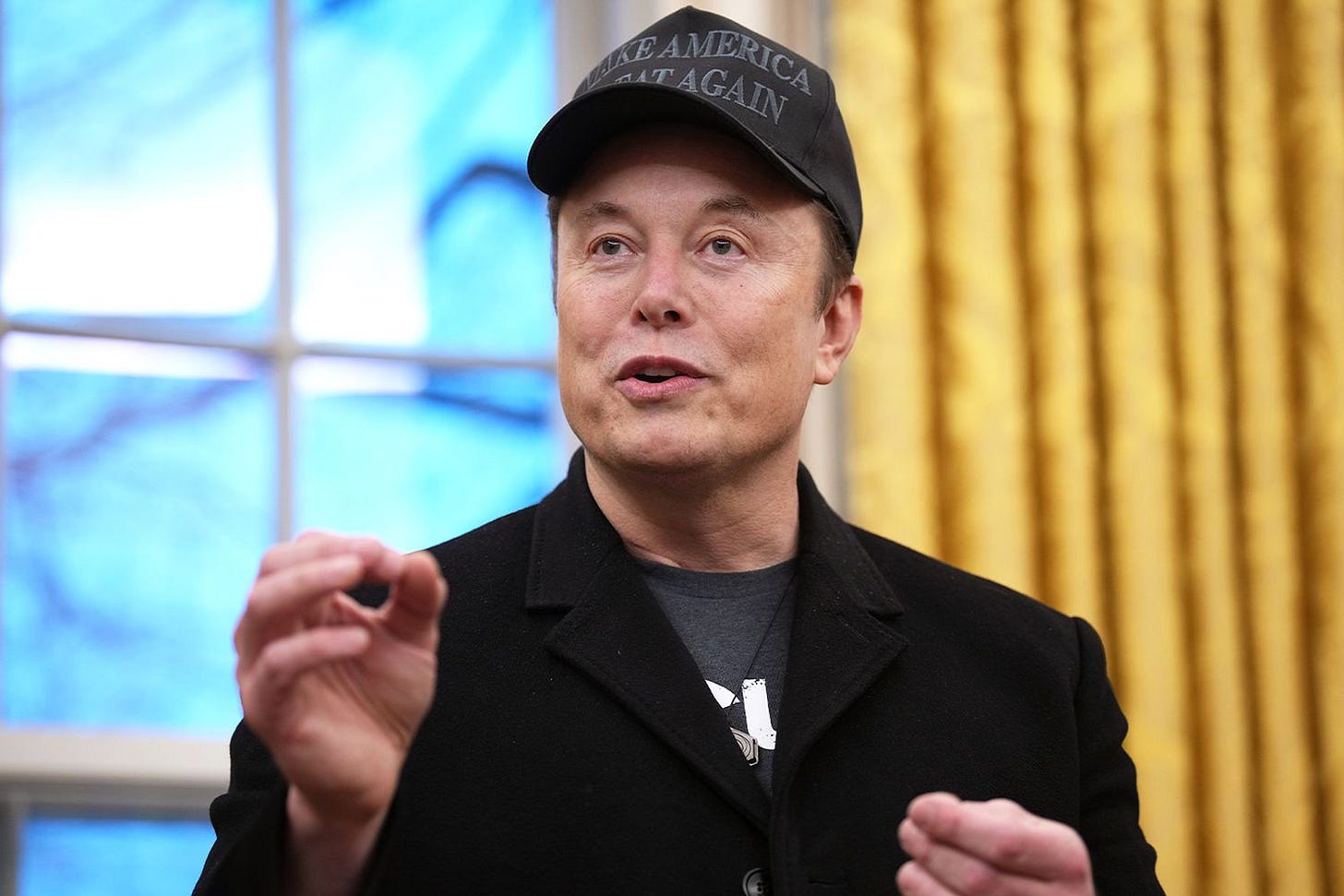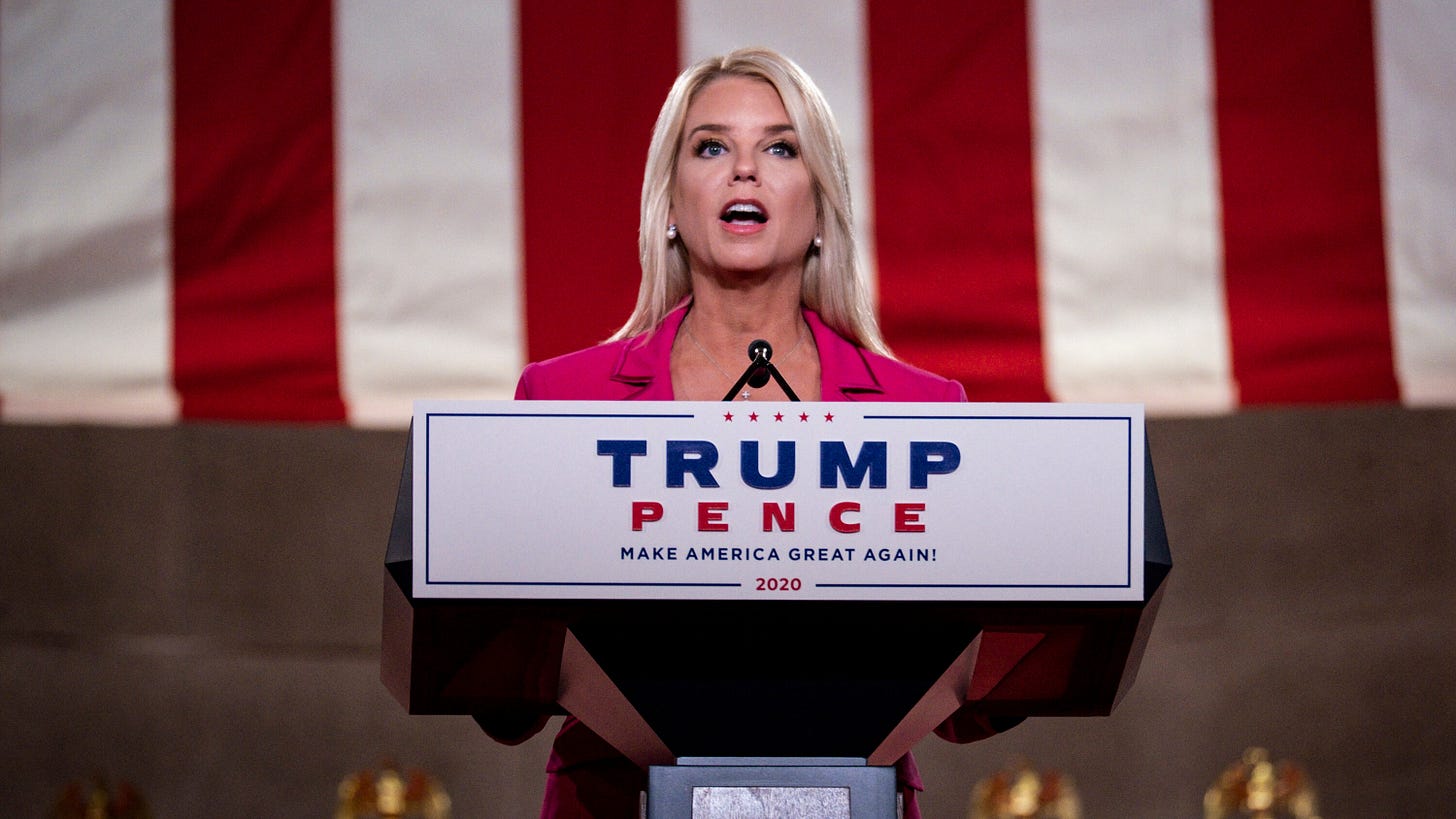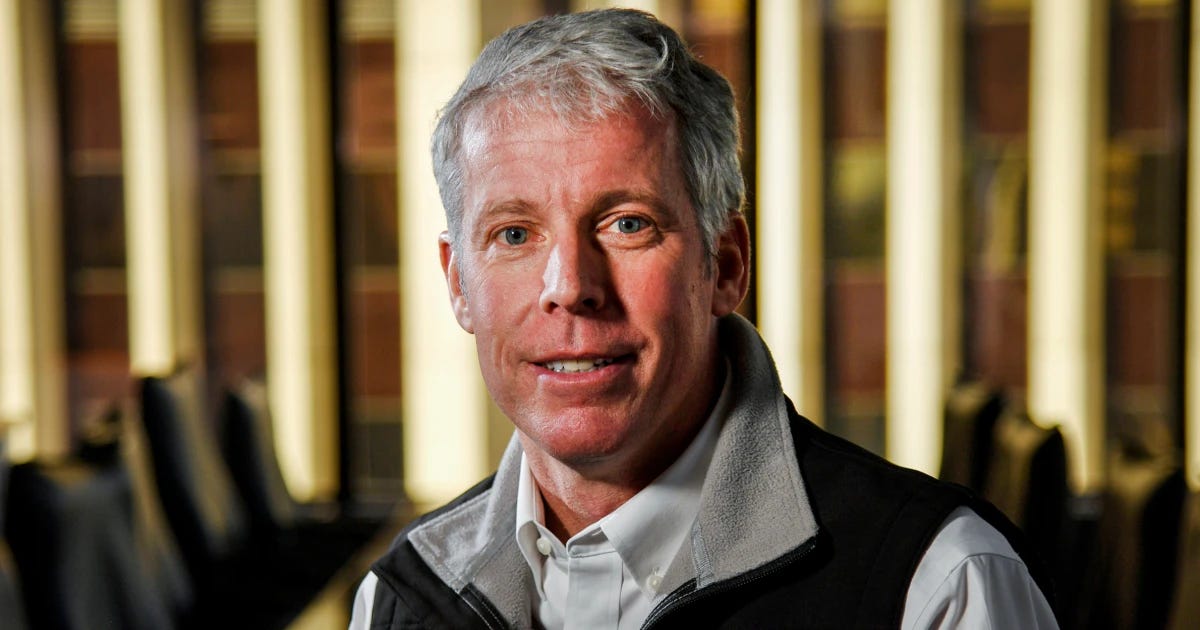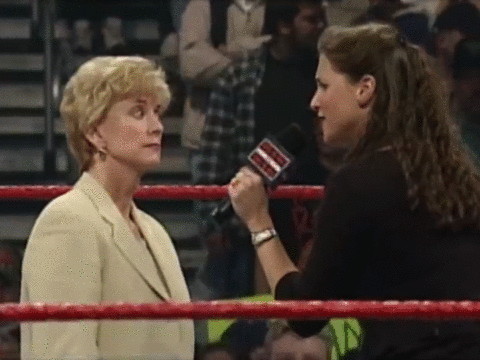On 20th January 2025, Donald Trump was sworn in for his second term as President of the United States. And almost immediately, it became clear: this would not be a presidency run by politicians.
It would be run by businessmen.
Within weeks, Trump unveiled a cabinet stacked with hedge fund managers, oil executives, media moguls, and one or two former Fox News personalities for good measure. Far from the “drain the swamp” rhetoric of 2016, this administration is shaping up to be the most financially entangled in modern American history.
But these aren’t just wealthy appointees — they’re individuals with active business interests, many of them still entangled with contracts, foreign clients, and global financial markets. Several even have direct ties to companies that could benefit from their new positions of power.
The question isn’t just whether conflicts of interest exist.
It’s whether anyone’s even pretending to care anymore.
Howard Lutnick: The Stock-Pumping Secretary
Trump’s pick for Secretary of Commerce is Howard Lutnick — CEO of Cantor Fitzgerald, a financial services firm that rakes in billions in bond trading, brokerage, and investment banking.
Within days of assuming office, Lutnick went on national television and did something almost no Cabinet member in history has dared to do: he promoted a stock.
That stock? Tesla.
"I tell all my friends to buy it," Lutnick told Bloomberg TV, grinning.
Legal experts immediately raised alarms, calling it a blatant violation of federal ethics laws. Cabinet officials are prohibited from using public office to enrich themselves or others — particularly when it involves direct market influence. But here's the twist: Lutnick isn’t just talking up Tesla for fun. Cantor Fitzgerald stands to gain from surging investor interest, especially as it eyes expansion into energy and AI sectors tied to Musk’s empire.
And yet, no sanctions. No disciplinary action. Just a shoulder shrug from a White House that’s made conflict-of-interest its brand.
Elon Musk: The Unelected Power Behind the Throne
Though not officially in the Cabinet, Elon Musk may be the most influential figure in Trump’s second term.
He’s not just advising the president on AI and space policy. He’s also been given unprecedented access to defence officials, including a private 80-minute meeting at the Pentagon with Defence Secretary Pete Hegseth.
After details of that meeting were leaked to the press, Musk reportedly demanded those responsible be prosecuted — a chilling response from a private citizen now operating at the highest levels of government.
Thankfully this is the only example of Musk expressing fascist tendencies…
But it’s not just the secrecy or the proximity to military operations that concerns ethics watchdogs. It’s Musk’s sprawling network of business interests — including massive investments in China, where Tesla runs a flagship factory and SpaceX’s satellite launches face scrutiny over dual-use technology.
Trump himself acknowledged the elephant in the room, telling reporters Musk would not be given access to sensitive war plans involving China, given his "deep business entanglements" there.
In any other administration, that kind of admission would end the relationship. In this one, it’s a footnote.
Pam Bondi: The Lobbyist Who Became Attorney General
Pam Bondi, Trump’s newly appointed Attorney General, brings a resume that reads more like a lobbyist’s LinkedIn page than a justice official’s.
Before her nomination, Bondi was a registered lobbyist for Qatar — yes, the foreign government — as well as The GEO Group, one of America’s largest private prison contractors, which holds lucrative federal immigration detention contracts.
Now she’s the top law enforcement officer in the country. You don’t need to be a cynic to see the problem.
During confirmation hearings, Bondi was grilled on whether she would recuse herself from cases involving her former clients. Her answer? A vague promise to “consult with ethics officials.”
Translation: probably not.
Critics say Bondi’s appointment is the clearest example yet of Trump rewarding loyalty and connections over qualifications. The result is a Department of Justice that’s now led by someone who, just months ago, was cashing cheques from the very industries she’s meant to regulate.
Chris Wright: Oil and Power, All in One Office
Chris Wright is now America’s Secretary of Energy — and until recently, he was the CEO of Liberty Oilfield Services, one of the country’s largest fracking companies.
Though he formally resigned from his position upon taking office, the ties remain fresh and deep. Liberty specialises in shale extraction and operates across the U.S., and many of the decisions Wright now oversees — including fossil fuel subsidies, land access, and regulatory reform — could still directly benefit his former industry.
To make matters worse, Wright has a long public record of opposing renewable energy expansion and mocking climate scientists on social media. And now he’s leading the country’s entire federal energy strategy.
In a video titled “Let’s Be Honest” posted two years ago to his personal YouTube channel, Wright opens with a jaw-dropper: “There is no climate crisis.” Bold words — even for an oil CEO.
In theory, he should recuse himself from decisions involving the oil and gas sector. In practice? He’s already made clear that deregulation is a top priority.
It’s the fox, no longer guarding the henhouse — but still holding a set of keys.
Linda McMahon: Wrestling with Influence
Linda McMahon is back in government — this time as Secretary of Education.
You might remember her as the former CEO of WWE, or as the head of the Small Business Administration under Trump’s first term. But McMahon is also the co-founder of a super PAC that donated over $24 million to pro-Trump causes, including his 2024 re-election bid.
Her new role puts her in charge of America’s $1.5 trillion student loan system and a national curriculum under threat from political interference.
McMahon has no background in education policy — but she does have extensive business ties through WWE and various real estate holdings. Critics argue her appointment is more about consolidating power than improving schools.
Given her history of funding political campaigns and personally enriching her brand through public office, don’t be surprised if WWE finds itself featured in taxpayer-funded curriculum anytime soon.
RFK Jr.: The Wild Card at Health and Human Services
Perhaps the most bizarre pick in Trump’s Cabinet is Robert F. Kennedy Jr., a former Democrat, vaccine sceptic, and now Secretary of Health and Human Services.
RFK Jr. is a prolific anti-vaccine campaigner and founder of the Children’s Health Defense — a group that spreads misinformation under the guise of medical advocacy. The group has raked in millions in donations, some from overseas, while marketing health supplements and alternative medicine cures.
Now, as head of HHS, he’s in charge of the CDC, the FDA, and America’s public health response.
It’s a nightmare scenario for scientists and doctors. Kennedy has already suggested he’ll review vaccine mandates and reconsider CDC guidelines. His family — yes, that Kennedy family — has publicly disowned his views.
And yet here he is. In the room. Making the decisions.
The Bigger Picture: Corruption as Governance
This isn’t about a few bad actors.
This is a system now openly designed to benefit insiders.
Trump’s second term has brought with it not just a Cabinet, but a network — of CEOs, political donors, former lobbyists and ideological firebrands, many of whom have direct financial interests in the policies they now control.
And unlike past administrations, there’s no real attempt to hide it.
Ethics rules? Waived. Conflicts of interest? Ignored. Financial disclosures? Incomplete, delayed, or missing altogether. The Trump White House has simply decided that the public no longer cares — or no longer matters.
It’s a dangerous assumption.
What Comes Next?
It’s hard to say whether the courts, Congress, or the media will catch up with this new breed of insider influence. But one thing is clear: power in 2025 isn’t just political. It’s commercial.
For Trump’s Cabinet, public service is just another revenue stream — and the American people are the ones footing the bill.
The grift isn’t a sideshow anymore.
It is the show.
🔒 Want the Full Story?
In this article, I’ve covered just a few of the biggest players — but they’re not the only ones.
The full 4,000-word investigation drops this Sunday — exclusively for paid subscribers.
Inside, you’ll get:
A breakdown of every cabinet member’s business ties
Hidden financial connections through spouses and family
Exclusive insights into private equity deals, lobbying records, and foreign interests
And a deep dive into the billionaire pipeline that’s taken over Washington
If you thought this was bad, just wait.
Upgrade now so you don’t miss it.

